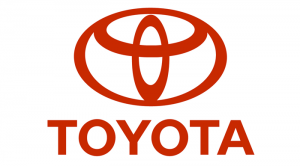In the latest BodyShop Business Industry Profile, 45% of collision repair facilities said they’re certified by at least one original equipment manufacturer (OEM). It is a trend that will continue as more and more emphasis is put on having the proper training, tooling, equipment and information to properly and safely perform repairs on today’s highly sophisticated vehicles.
OEMs today are taking a greater stake in how their vehicles are repaired for many reasons, starting or strengthening certification programs for body shops nationwide. They understand how a poor repair can hurt their brands. They also want the structural and technological integrity of their vehicles restored to extend and maintain the vehicle’s expected life.
Collision repair facilities understand that they must follow the OEM repair guidelines today, since modern vehicles do not much resemble vehicles of the past as far as electronics and structural materials. There is plentiful access to those guidelines, but getting certified makes it easier. It also gives customers peace of mind that your shop can do proper repairs on their second-biggest investments. Do you market to the consumer? Why would you invest so much money in OEM certifications and not trumpet that you’re certified to the world? The OEM will do some of the marketing for you with auto body shop locators on consumer-facing websites that educate consumers on the value of a certified repair. OnStar directly communicates with consumers, steering them to nearby certified facilities when they’ve been in a wreck. But the brunt of marketing lies on your shoulders.
The liability is increasing in repairing today’s vehicles, one reason being the advanced driver-assistance systems (ADAS) in automobiles today. OEM certification, following the OE guidelines and then verifying you followed the guidelines and creating a bulletproof file will reduce your exposure to that liability and also protect your reputation.
If you do not follow OEM repair guidelines, you’re essentially reengineering the vehicle. And per the John Eagle lawsuit, you’re taking on liability by reengineering the vehicle. The automakers have invested a lot in engineering a vehicle for maximum performance, safety and longevity/end of life; who better to listen to and protect yourself from liability than the entity that designed the vehicle? The OEM knows best how to repair its vehicles; there is no more room for guesswork and relying on “what was done before.”
OEM certification is a competitive advantage, especially against the burgeoning multi-shop owner (MSO) population. In fact, some collision shop owners believe it’s their strongest differentiator and advantage. And, if indeed OEM referrals will take the place of the old insurer direct repair program (DRP) model one day, then those shops with the most certifications will be in the best position for success.
Improper and low-quality repairs will be found out and social media will expose certain shops. Wouldn’t you like to be the shop in your area with the reputation for “doing it right,” following OE guidelines to a T, and protecting your customers’ investment and safety of their family? Continual investment in tooling and training is the norm now, and it must be accepted in order to move forward and succeed as a business in the collision repair industry. One way to ensure you know what it takes to repair a vehicle properly is OEM certification.
Unfortunately, it’s not a question of return on investment (ROI). There are plenty of shops that have multiple certifications and aren’t necessarily seeing a robust ROI. It is the right thing to do for the family that is driving that vehicle at high speeds on the highway. What is your reputation worth? Put that number in your head, and the ROI becomes apparent.
Some OEM certifications are easier and cheaper to attain than others, but think about it: to thrive in this industry, you have to buy the equipment anyway. It’s a way of knowing your techs are repairing vehicles “by the book” to minimize liability for your shop and potentially destroying everything you’ve worked for. But whether you’re certified or not, you should be repairing cars properly. Reputation is everything.














